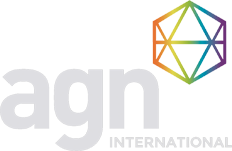What’s the first thing you think of when you hear “financial statement audit”? Do you get anxious, start to sweat, or start doing mental math from the past year’s expenses?
The concept of a financial statement audit is often met with discomfort and fear, but it doesn’t have to be that way. In fact, it shouldn’t be that way—and we’re here to help ensure the words “financial audit” never make you curl up into the fetal position again.
Preparing for a Remote Audit: What You Need to Know
Now more than ever, audits are taking place remotely due to the current state of the workforce. If you’ve never handled a remote audit before, don’t panic. Below, learn what you need to prepare for an audit, and how the right team can help you.
5 Easy Tips for Transitioning to Remote Auditing
Communication! Communication! Communication!
That’s it. That’s the tip. Communication is absolutely the most important aspect of an audit…let’s be honest, the most important thing in business, period. And communication is a two-way street. Be sure that you and your audit team have worked out a clear plan for communicating before, during, and after audit fieldwork. This plan should include the following:
- Who. Make sure the right people are involved and they are involved at the right times during the audit process. During the audit, your team and the audit team will work together regularly. There will be times during the audit that it will be beneficial for some of your leadership and the audit team's leadership to meet. At a minimum, leadership touch-points would coincide with each milestone date agreed upon during the audit process. However, we recommend an open invitation to those scheduled touch-points as necessary.
- When. Regularly scheduled touch-points. These should be scheduled at a consistent time during audit fieldwork so progress updates can be provided by both the audit team and your team.
- What. Agree on milestone dates. This should include when audit planning will be performed, when pre-fieldwork (interim) procedures will be worked on and completed, fieldwork completion dates, the first draft of financial statements will be ready for your review, and when the closing meeting and conversation is expected to occur.
- Where. Will everything be conducted virtually? The answer depends on each company's perspective. A majority of the audit process can be handled virtually, but there will be instances that call for in-person visits from the audit team to review paper documents.
- How. Establish a method of communication. While email and phone conversations will continue to be extensively utilized, the primary means of virtual "get-togethers" are conducted via Zoom or Microsoft Teams. Decide what is best for you and your team. That being said, we do recommend embracing some level of video conferencing in a virtual audit environment. We've found both Zoom and Microsoft Teams to be great alternatives to in-person meetings. How, Part 2: How will documents be provided? Should they be emailed back and forth? We will come out and say it: email has proven to not be the best option for several reasons—it's just not secure. Please use a secure FileShare option to transmit all audit documentation. Transmitting a lot of documents back and forth through a centralized, organized location is another key to successful audits (and less headaches).
What to Watch for When Preparing for an Audit
So you know what to look for in an audit committee member, but that’s just step one. It’s important for CEOs and businesses owners to know what to look for while preparing for an audit, and here are a few of our top recommendations:
Request List
A request list is exactly what it sounds like: A requested list of documents to support your audit. Documents outlining company policies, schedules, reports, etc. are requested and used by audit teams to gain a better understanding of the processes already in place. Look for the following three qualities of a good request list:
- Realistic deadlines that keep things progressing steadily
- Requests in priority order, so you can focus on what’s most important first
- Clearly defined requirements for documents—i.e., should documents be provided as hard copies, emails, PDFs, or uploaded to a website?
Plan, Outline, or Agenda
An audit will go a lot smoother if everyone is aware of the plan. When preparing for an upcoming remote audit, be sure that everyone on the team, Board of Directors, and audit committee knows when to be present for virtual meetings.
What Technology is Needed?
Although it might seem like the whole world lives on Zoom these days, your remote audit may take place on a different video conferencing platform or online app. Save yourself the stress and arrive prepared by signing up for, downloading, or familiarizing yourself with the digital tools you’ll be using throughout audit week.
Your Financial Audit In Trusted Hands
At Froehling Anderson, our audit and assurance team can serve as a trusted partner as you prepare for your upcoming remote audit. Our experienced team works with privately held companies and nonprofit organizations to help identify business risks, improve internal controls, evaluate accounting issues, and assess the quality of information used to make crucial business decisions. We’ll help with:
- Financial Statement Audits
- Financial Statement Compilations
- Financial Statement Reviews
- Employee Benefit Plan Audit Services
- Personal Financial Statements
There’s no need to fear your upcoming audit. With a trusted audit committee, a clearly defined process, the right digital tools, and an audit and assurance partner like Froehling Anderson to rely on, transitioning to remote auditing will be a breeze.


